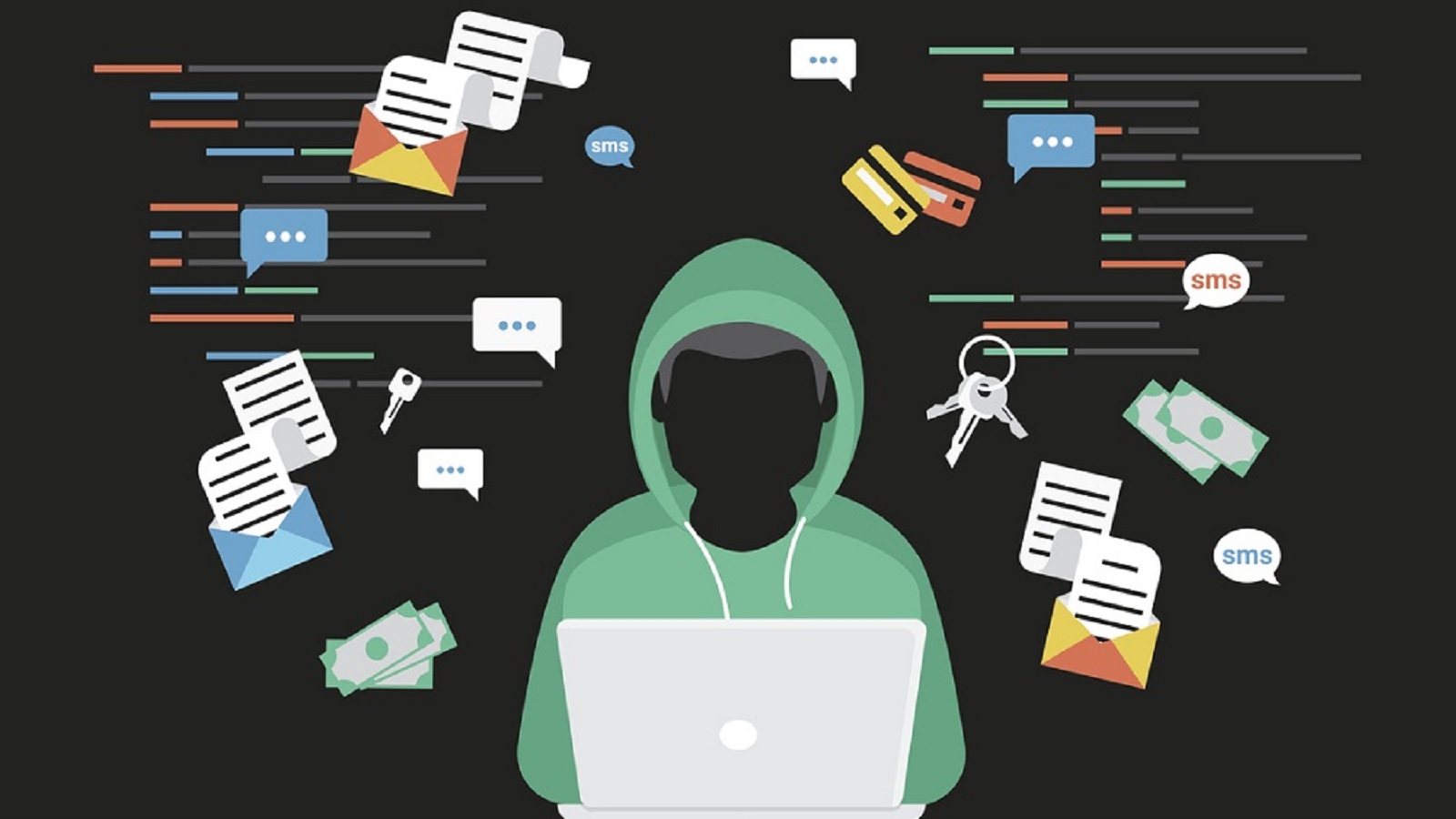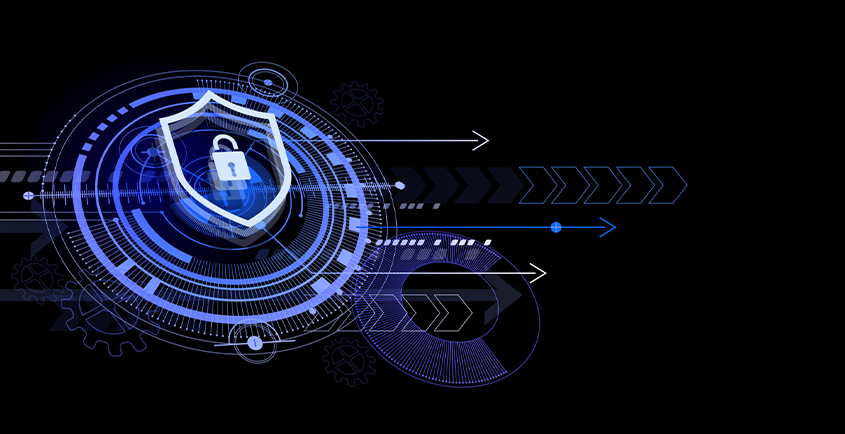Introduction
In today's digital age, cybersecurity has become a critical concern for individuals, businesses, and governments alike. With the increasing reliance on technology, the threat landscape has evolved, making it essential to understand the various cybersecurity threats and the protections available to mitigate them. This article delves into the intricacies of cybersecurity, exploring the types of threats, the importance of cybersecurity, and the measures that can be taken to safeguard digital assets. Additionally, we will highlight how Al Mithaq Institute, with its comprehensive range of cybersecurity courses, can equip you with the knowledge and skills needed to navigate this complex field.
The Importance of Cybersecurity
The Digital Transformation
The digital transformation has revolutionized the way we live, work, and interact. From online banking to social media, our lives are increasingly conducted in the digital realm. While this has brought about numerous conveniences, it has also exposed us to a range of cybersecurity threats. Cybercriminals are constantly devising new methods to exploit vulnerabilities, making it imperative for individuals and organizations to stay vigilant.
The Cost of Cyber Attacks
The financial impact of cyber attacks can be devastating. According to a report by Cybersecurity Ventures, the global cost of cybercrime is expected to reach $10.5 trillion annually by 2025. This includes direct financial losses, as well as the cost of recovery, reputational damage, and lost business opportunities. For businesses, a single cyber attack can result in significant financial losses, legal liabilities, and a loss of customer trust.
The Role of Cybersecurity
Cybersecurity plays a crucial role in protecting sensitive information, maintaining privacy, and ensuring the integrity of digital systems. It encompasses a range of practices, technologies, and processes designed to safeguard networks, devices, and data from cyber threats. By implementing robust cybersecurity measures, individuals and organizations can reduce the risk of cyber attacks and minimize the potential impact.
Types of Cybersecurity Threats
Malware
Malware, short for malicious software, is a broad term that encompasses various types of harmful software designed to infiltrate, damage, or disrupt computer systems. Common types of malware include viruses, worms, trojans, ransomware, and spyware. Malware can be spread through email attachments, malicious websites, or infected software downloads.
Phishing
Phishing is a type of cyber attack that involves tricking individuals into revealing sensitive information, such as passwords, credit card numbers, or social security numbers. Phishing attacks are typically carried out through email, where the attacker poses as a legitimate entity, such as a bank or online service provider, and requests the victim to provide their information.
Denial of Service (DoS) Attacks
A Denial of Service (DoS) attack is a type of cyber attack that aims to make a network, service, or website unavailable by overwhelming it with traffic. This can result in the targeted system becoming slow or unresponsive, preventing legitimate users from accessing it.
Man-in-the-Middle (MitM) Attacks
A Man-in-the-Middle (MitM) attack occurs when an attacker intercepts and alters communication between two parties without their knowledge. This type of attack can be used to steal sensitive information, such as login credentials or financial data.
SQL Injection
SQL injection is a type of cyber attack that involves inserting malicious SQL code into a database query. This can allow the attacker to gain unauthorized access to a database, retrieve sensitive information, or modify data.
Zero-Day Exploits
A zero-day exploit is a type of cyber attack that takes advantage of a previously unknown vulnerability in software or hardware. Because the vulnerability is unknown to the vendor, there is no patch or fix available, making zero-day exploits particularly dangerous.
Cybersecurity Protections
Firewalls
A firewall is a network security device that monitors and controls incoming and outgoing network traffic based on predetermined security rules. Firewalls act as a barrier between a trusted internal network and untrusted external networks, such as the internet, and can help prevent unauthorized access to a network.
Antivirus Software
Antivirus software is a type of program designed to detect, prevent, and remove malware from a computer system. Antivirus software works by scanning files and programs for known malware signatures and behaviors, and can help protect against a range of cyber threats, including viruses, worms, and trojans.
Encryption
Encryption is the process of converting data into a coded format that can only be read by someone with the correct decryption key. Encryption is used to protect sensitive information, such as passwords, credit card numbers, and personal data, from being intercepted and accessed by unauthorized parties.
Multi-Factor Authentication (MFA)
Multi-Factor Authentication (MFA) is a security mechanism that requires users to provide two or more forms of identification before gaining access to a system or account. This typically includes something the user knows (such as a password), something the user has (such as a smartphone), and something the user is (such as a fingerprint). MFA adds an extra layer of security, making it more difficult for attackers to gain unauthorized access.
Regular Software Updates
Regularly updating software is a critical aspect of cybersecurity. Software updates often include patches for known vulnerabilities, which can help protect against cyber attacks. It is important to keep all software, including operating systems, applications, and firmware, up to date to ensure the highest level of security.
Employee Training
Human error is one of the leading causes of cybersecurity breaches. Providing employees with regular training on cybersecurity best practices can help reduce the risk of cyber attacks. This includes educating employees on how to recognize phishing emails, the importance of strong passwords, and the risks of using unsecured networks.
Incident Response Planning
An incident response plan is a set of procedures that an organization follows in the event of a cybersecurity breach. This includes identifying the breach, containing the damage, eradicating the threat, and recovering from the incident. Having a well-defined incident response plan in place can help minimize the impact of a cyber attack and ensure a swift recovery.
The Role of Al Mithaq Institute in Cybersecurity Education
Comprehensive Cybersecurity Courses
Al Mithaq Institute offers a wide range of cybersecurity courses designed to equip students with the knowledge and skills needed to protect against cyber threats. Our courses cover a variety of topics, including network security, ethical hacking, digital forensics, and cyber law. Whether you are a beginner or an experienced professional, our courses are tailored to meet your needs and help you stay ahead in the ever-evolving field of cybersecurity.
Expert Faculty
Our faculty members bring over a decade of professional experience in the field of cybersecurity. They combine academic excellence with practical knowledge, providing students with a comprehensive understanding of cybersecurity concepts and techniques. Our faculty is dedicated to delivering insightful education and engaging training courses that prepare students for real-world challenges.
Flexible Learning Options
At Al Mithaq Institute, we understand that our students have diverse needs and schedules. That's why we offer flexible learning options, including online and in-person courses. Our online courses provide the convenience of learning from anywhere, while our in-person courses offer the opportunity for hands-on training and face-to-face interaction with instructors.
Accreditation and Recognition
Our certificates are recognized locally and internationally, enhancing the credibility and educational value of our programs. We are accredited by the Knowledge and Human Development Authority (KHDA) of Dubai and have a partnership with Leeds International College, UK. This ensures that our students receive a high-quality education that is recognized by employers and institutions worldwide.
Career Opportunities
Cybersecurity is a rapidly growing field with a high demand for skilled professionals. By enrolling in our cybersecurity courses, you can gain the qualifications needed to pursue a rewarding career in this field. Our courses are designed to prepare you for a range of roles, including cybersecurity analyst, network security engineer, ethical hacker, and digital forensics investigator.
Conclusion
In conclusion, understanding cybersecurity threats and protections is essential in today's digital world. Cyber attacks can have devastating consequences, but by implementing robust cybersecurity measures, individuals and organizations can reduce the risk and minimize the impact. Al Mithaq Institute is committed to providing excellence and innovation in cybersecurity education, offering a comprehensive range of courses designed to equip students with the knowledge and skills needed to navigate this complex field. Whether you are looking to start a career in cybersecurity or enhance your existing skills, our courses provide the flexibility, expertise, and accreditation needed to succeed. Enroll today and take the first step towards a secure digital future.
Call to Action
Don't wait until it's too late to protect yourself and your organization from cyber threats. Enroll in one of Al Mithaq Institute's cybersecurity courses today and gain the knowledge and skills needed to safeguard your digital assets. Visit our website at https://almithaqinstitute.com/ to learn more about our courses and how we can help you achieve your cybersecurity goals. Contact us at https://almithaqinstitute.com/contact/ to speak with an advisor and get started on your journey to becoming a cybersecurity expert. Together, we can build a safer digital world.







